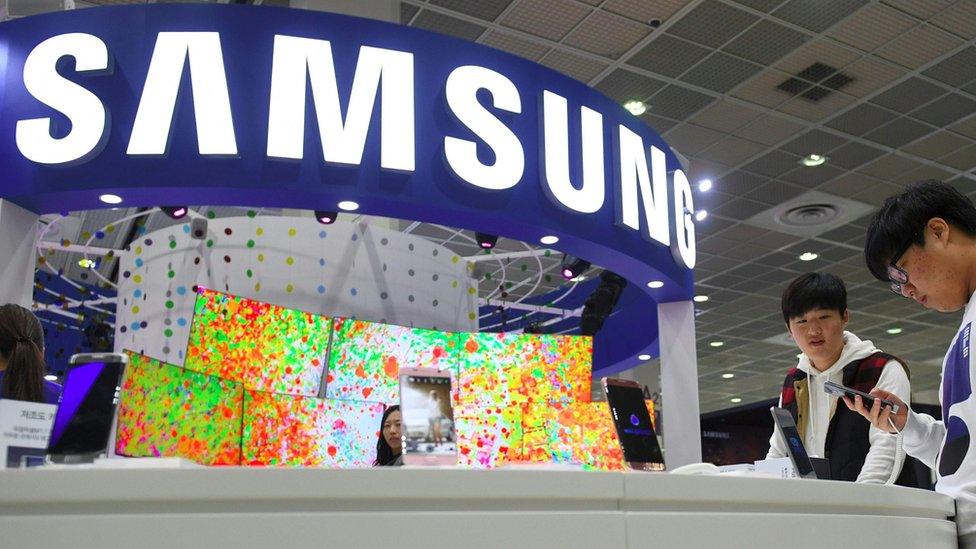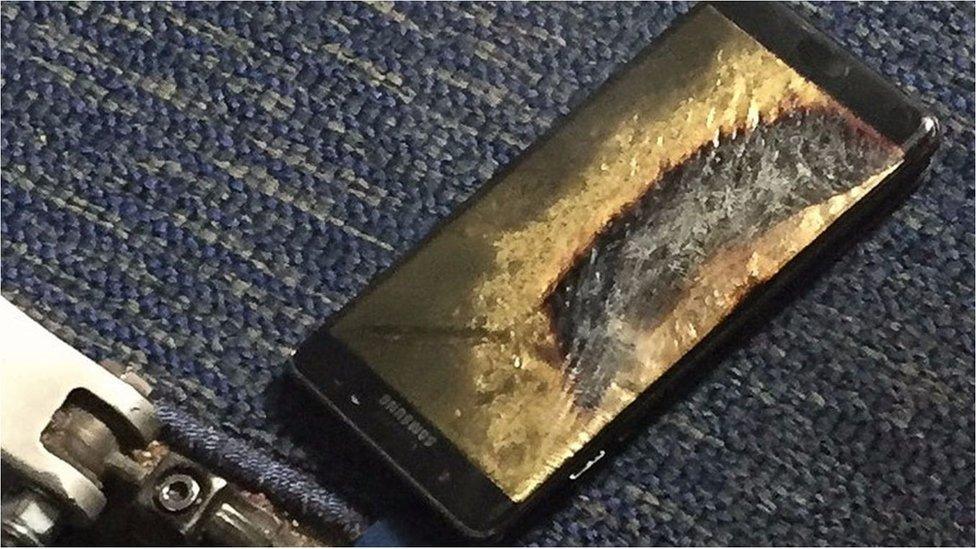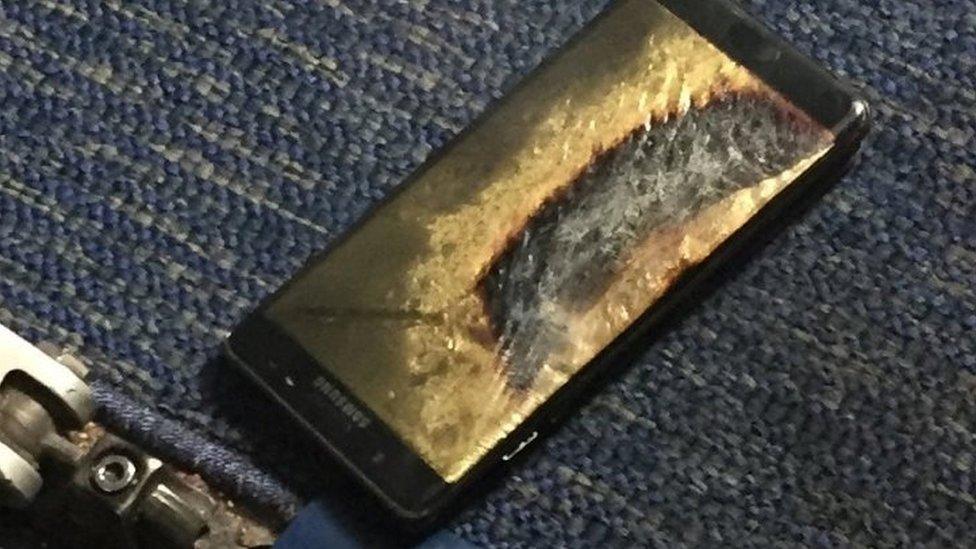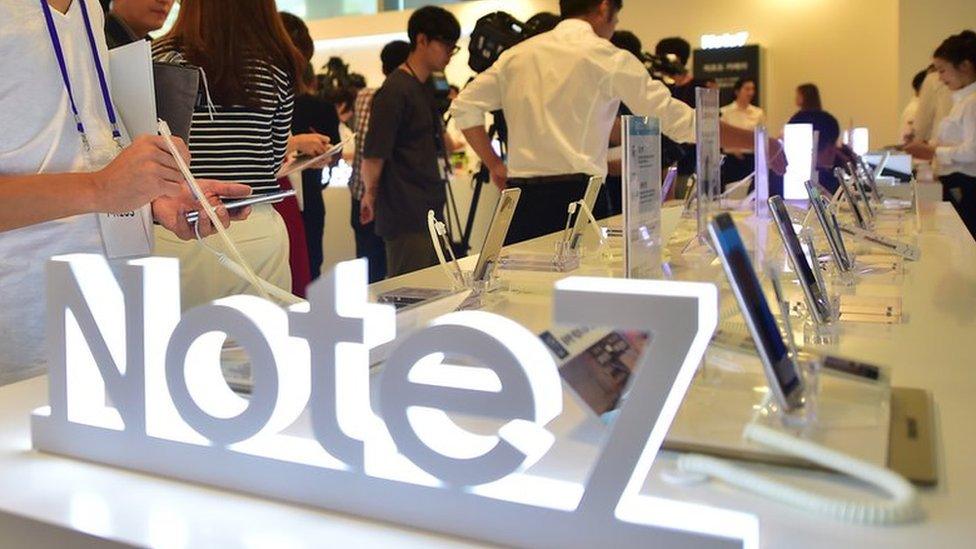Samsung: Why is it doing so well despite Galaxy Note 7 fiasco?
- Published

Samsung Electronics saw profits surge 50% in the last three months of 2016, despite the Note 7 phone fiasco.
The 9.2 trillion won ($7.2bn; £5.8bn) quarterly profit is the South Korean firm's highest since 2013.
In October, the smartphone maker had to scrap the Note 7, after recalling 2.5 million handsets. Batteries were blamed for phones catching fire.
Samsung has also been embroiled in a corruption scandal, threatening its reputation, so how has it done so well?
It's not just about phones
Recalling and then ultimately killing off the Note 7, is thought to have cost Samsung $5.3bn (£4.3bn), a sum that would have made the firm's profits far bigger.
But while it is the world's biggest smartphone maker, phones are not its only business. It is also well known for its flat screen televisions and that side of things is doing well.
But the real jewel in the crown has been its semiconductor business which makes the chips for phones and servers.
Memory chip prices are rising sharply as demand grows, primarily from phone makers and Samsung is the biggest maker of the chips, ahead of rivals like Toshiba.
Customers seem unfazed
Despite the YouTube videos of burning phones, the drip-drip of negative stories and the internet memes, Samsung does not seem to have been as tarnished anywhere near as badly as you might expect.
A Reuters/IPOS study, external in the aftermath of the scandal found Samsung users in the US remained as loyal to their brand as Apple users were to their iPhones.
Because the problem was identified shortly after the Note 7 was released the recall was mostly limited to early adopters, and this limited the negative experiences, said Jan Dawson of Jackdaw Research.

This Samsung phone led to a flight being evacuated - but the Samsung image is not too tarnished.
"Your own personal experience trumps what you read and what people tell you," Dawson at the time of the Reuters/Ipsos poll.
And Samsung has said that after its recall, most customers chose to replace their Note 7 with a different Samsung handset - including the Galaxy S7 and S7 Edge - rather than getting the money back.
Our correspondents in South Korea say that a major corporate scandal - which led to a court being asked to issue an arrest warrant for the firm's heir apparent over bribery allegations - did not seem to have tarnished the corporation's reputation at home dramatically either.
However, while the arrest request was turned down, Samsung remains embroiled in the case and the firm has acknowledged the "changing political landscape in Korea" could have some longer term impact on the business. So future results will be watched closely.
Currency benefit
Not a particularly glamorous explanation but the strong dollar has also been a benefit to Samsung.
The won's value against the US currency has fallen, meaning that when sales from overseas are brought back to South Korea they are worth more.
It's something all South Korean exporters have benefited from recently.
Of course currency fluctuations work both ways, and the strong dollar means that any dollar-denominated debt is more expensive.
- Published23 January 2017

- Published6 April 2018

- Published5 January 2017

- Published14 October 2016
